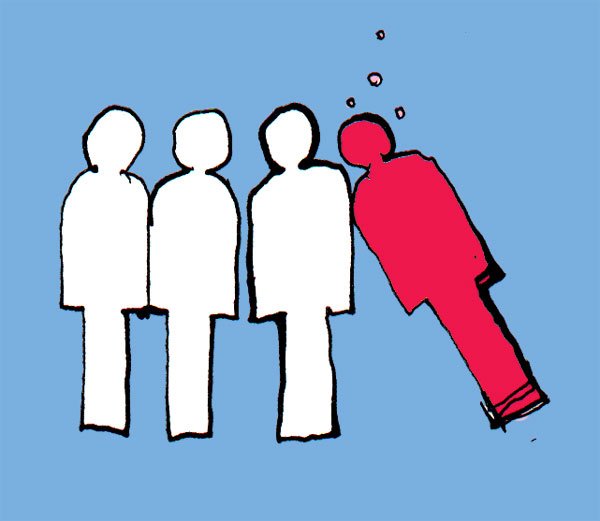It’s easy to tell a family member or a friend you have the flu or a broken leg for example, most people wouldn’t think twice about asking for a helping hand while they are ill, or having to inform work/school of their absence. Replace ‘flu’ with anxiety, or ‘broken leg’ with bipolar disorder and you’ve got a whole different situation. The social stigma of mental health is characterised by the prejudice and discrimination directed towards those who are suffering with a mental illness. But isn’t mental illness of equal importance to physical illness? The answer to this question is yes.
The truth is, 1 in 4 people in a given year experience mental health issues, and 90% of these say they have experienced stigma as a result of their illness (Time to Change). Research has shown that stigmatisation of mental health disorders leads to both personal issues, such as lowered self-esteem, and social issues such as less job opportunities. So bringing it back to the flu example; would you rather seek help in recovering if it made you feel good about yourself and your social opportunities, or if it made you feel ashamed and isolated?
The stigmatisation of mental illness does not help those who are suffering, so why do people do it? Fear and lack of knowledge are two major contributors. The belief that people with mental illnesses are ‘unpredictable’ is worryingly widespread, but in reality, those suffering with mental health conditions are more likely to be of harm to themselves than anyone else. An example of a stigmatised symptom of many mental illnesses is mania; a period of behaviour characterised by an elevated or irritable mood. Although many believe manic behaviour to be dangerous, the most likely manic behaviours include things such as overspending money and having extreme/extravagant goals (not ‘dangerous’ behaviours).
With appropriate psychological knowledge, the stigma attached to mental illness may be reduced; a key factor in enabling those suffering to seek help, knowing they will not be discriminated against as a result. Remember; inform and educate yourself to prevent prejudice thoughts and behaviour, and also, anybody can suffer from mental illness.
Visit the ‘Time to Change’ website to learn more about various types of mental illnesses and the stigma surrounding them, and how you can help to reduce stigma.
MIND is a mental health charity that aim to support individuals suffering with mental illness, and campaign to promote better understanding of mental health in order to eliminate stigma. Their YouTube page provides many videos explaining mental illnesses, their symptoms and even provides personal accounts of people suffering with numerous conditions. Here is an example of one of the videos from their page.
Even the royal family are getting involved… Click here to be taken to the ‘Heads Together’ page for further information regarding mental health. Heads Together is a newly established charity launched by Prince Harry and the Duke and Duchess of Cambridge; William and Kate.
A contribution by Georgia De-Bank, Edge Hill University, for PsychLiverpool.





